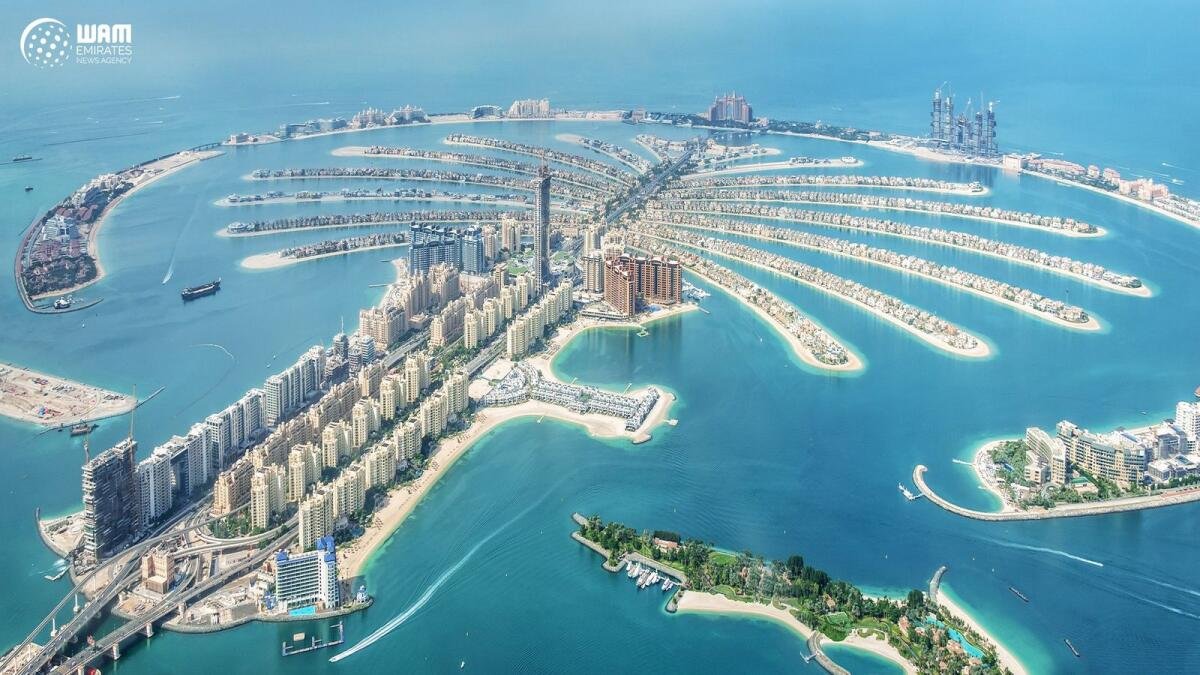UAE
Region
‘Fire and forget’ in Gaza
Those who survive Israel’s genocidal bombardment may not survive the sight of the death and destruction it leaves behind.Earlier this...
Read moreBusiness
GCC economies to forge ahead despite geopolitical risks
GCC economies to forge ahead despite geopolitical risks
Read moreThese apps allow workers to get paid between paychecks. Experts say there are steep costs
NEW YORK (news agencies) — When Anna Branch, 37, had her hours at work reduced at the start of the...
Read moreMy Abu Dhabi Salary: ‘I earn up to Dh18,000 a month as a business coach’
My Abu Dhabi Salary: ‘I earn up to Dh18,000 a month as a business coach’
Read moreWorld
FeaturedStories
Learn When is Best Time to invest in Real Estate Market | Shailesh Dash
With the aim to empower individuals with necessary knowledge and learning to create wealth and become financially independent, the latest...
Read moreGold & Forex
Gold & Forex Rates
Gold & Forex Rates Currencies Morning Evening Yesterday Indian Rupee (INR) 22.63 22.63 22.63 Pakistani Rupee (PKR) 75.68 75.68 75.74...
Read moreSports
Jamal Murray sinks shot at buzzer to cap 20-point comeback and lead Nuggets past Lakers 101-99
DENVER (news agencies) — Jamal Murray didn’t even see the biggest basket of his career. At least not live, he...
NFL teams often misfire on drafting QBs. But how often do they fail? And why?
The Minnesota Vikings need a quarterback in this draft. That much is easy to see. The hard part is picking...
Nelly Korda ties LPGA Tour record with 5th straight victory, wins Chevron Championship for 2nd major
THE WOODLANDS, Texas (news agencies) — Nelly Korda couldn’t have imagined the incredible run she’s put together this season while...
Technology
Two tribal nations sue social media companies over Native youth suicides
Two tribal nations are accusing social media companies of contributing to the disproportionately high rates of suicide among Native American...
Biden administration announces $6.6 billion to ensure leading-edge microchips are built in the US
WILMINGTON, Del. (news agencies) — The Biden administration pledged on Monday to provide up to $6.6 billion so that a...
Even in the age of Google Earth, people still buy globes. Here’s why they remain so alluring
LONDON (news agencies) — Find a globe in your local library or classroom and try this: Close the eyes, spin...
PR
Paklaunch raises funding led by Disrupt.com, eyes regional expansion
Dubai — Paklaunch, with a mission to advance entrepreneurship and innovation in Pakistan's startup ecosystem, successfully closed its seed funding...
Indian Businesswoman Deepali Vijay Jain Spreads Joy on International Women’s Day in Dubai
DUBAI: On International Women's Day, the spirit of celebration was vibrant in Dubai, and one individual stood out for her...
Central Trading Company launches second health and wellness program for over 10,000 automotive technicians
Central Trading Company (CTC), the oldest company of the Al Rostamani group alongside Castrol Lubricants, announced the launch of its...
Latest Post
Police clear out a migrant camp in central Paris. Activists say it’s a pre-Olympics sweep
PARIS (news agencies) — French police evicted migrants from a makeshift camp in Paris a few steps away from the...
Read more‘Fire and forget’ in Gaza
Those who survive Israel’s genocidal bombardment may not survive the sight of the death and destruction it leaves behind.Earlier this...
Read moreNew satellite images show scorched Iranian defence base after reported Israeli strike
Mystery still surrounds Israel's reported attack on Iran on Friday Live updates: Follow the latest on Israel-GazaThe latest satellite photos...
Read moreUAE President receives Australian Minister for Defence, Albanian Minister of Interior
President His Highness Sheikh Mohamed Bin Zayed Al Nahyan on Tuesday received Richard Marles, Deputy Prime Minister and Minister for Defence...
Read moreUS government agrees to $138.7M settlement over FBI’s botching of Larry Nassar assault allegations
DETROIT (news agencies) — The U.S. Justice Department announced a $138.7 million settlement Tuesday with more than 100 people who...
Read moreMoscow court rejects Evan Gershkovich’s appeal, keeping him in jail until at least June 30
MOSCOW (news agencies) — Wall Street Journal reporter Evan Gershkovich will remain jailed on espionage charges until at least late...
Read moreIn numbers: 200 days of Israel’s war on Gaza
More than 34,000 Palestinians have been killed and vast swaths of the enclave is in ruins as Israel continues its...
Read moreGCC economies to forge ahead despite geopolitical risks
GCC economies to forge ahead despite geopolitical risks
Read moreCoke Studio 15: When Zeeshan Ali and Haider Shah arrived at 2AM
I have always argued and stood by the fact that to subvert or change any tradition you must be if...
Read moreJamal Murray sinks shot at buzzer to cap 20-point comeback and lead Nuggets past Lakers 101-99
DENVER (news agencies) — Jamal Murray didn’t even see the biggest basket of his career. At least not live, he...
Read more
















































 United Arab Emirates Dirham Exchange Rate
United Arab Emirates Dirham Exchange Rate























